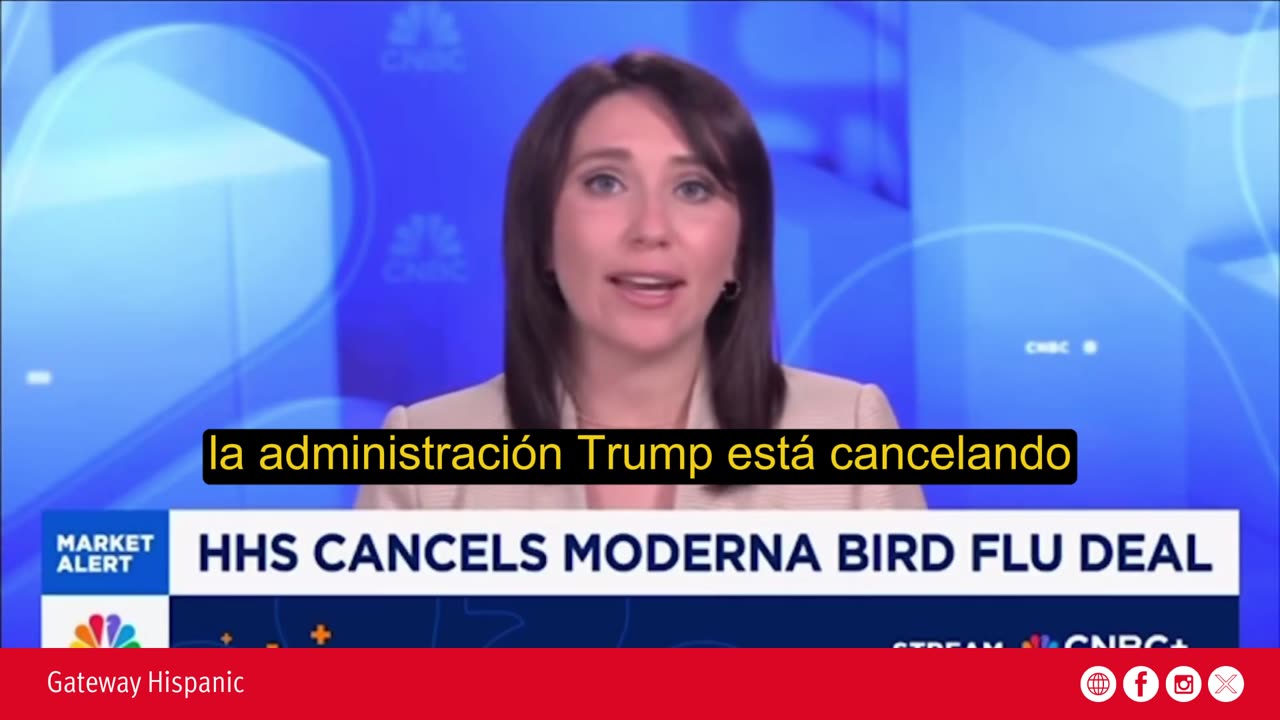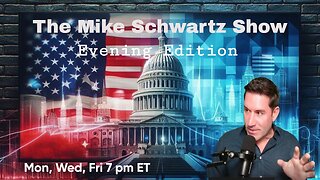Premium Only Content

Trump Cancels Multimillion-Dollar Moderna Contract Amid Doubts Over Bird Flu Vaccine
In a move widely supported among conservative circles and pharmaceutical skeptics, President Donald J. Trump’s administration has officially announced the cancellation of a federal contract with Moderna valued at over $700 million. The agreement aimed to develop an mRNA vaccine against avian flu and other pre-pandemic influenza viruses.
This decision marks a significant break from the strategy followed by the Biden administration, which aggressively promoted experimental mRNA technologies as a preventive response to potential outbreaks during its tenure. The Trump administration, on the other hand, emphasized that this measure comes after a rigorous scientific and ethical review of the project and its implications.
An Unnecessary and Potentially Risky Vaccine
In statements released Thursday, White House officials noted that the technical review of the Moderna contract concluded that investment in this technology for an H5N1 vaccine is not justified scientifically or ethically. The reason: the risk of transmission to humans remains marginal, while the mRNA platform continues to raise growing concerns about safety and efficacy.
“We will not compromise the health of the citizens of the U.S. nor waste public funds on treatments that have yet to prove long-term safety,” said a spokesperson for the Trump administration. “This is not a political decision; it’s a common-sense decision backed by evidence.”
Lessons from COVID-19 and Growing Skepticism
The decision to cancel this contract comes at a critical moment. In recent months, various critical voices have gained traction in the public debate. Among them is Robert F. Kennedy Jr., who has denounced the lack of transparency and the interests of the pharmaceutical-industrial complex surrounding mRNA vaccines. The COVID-19 experience, in which millions were vaccinated with mRNA technology under rushed circumstances, has left a legacy of skepticism.
Adverse effects reported by thousands of citizens and the lack of conclusive long-term studies remain hot topics. For the Trump administration, there simply isn’t enough trust or clinical backing to continue betting on a technology whose results are still under scientific review.
A Shift in U.S. Health Policy
Under the Biden administration, the Moderna contract was one of the government’s main commitments to prepare the country for potential pandemics. The vaccine, which was in Phase 3 trial stages, was part of an approach aimed at replicating the “rapid response” used during the COVID-19 emergency.
However, the current administration has chosen a different path—one in which caution, safety, and budgetary responsibility take precedence. “Investing in public health should not mean writing blank checks to pharmaceutical companies without concrete results,” declared the health secretary appointed by Trump.
Support from the Republican Electorate and a Commitment to Transparency
The decision has been praised by numerous Republican lawmakers, independent doctors, and citizens who distrust the dominant narrative surrounding experimental vaccines. “Finally, a president who stands with the people, not big pharma,” commented Senator Ron Johnson on social media, known for his advocacy of informed consent and medical transparency.
This move aligns with Trump’s campaign promise to return power to the people and reduce corporate influence over public health. As his second term progresses, these actions strengthen his image as a disruptive leader unafraid to confront powerful economic interests.
Next Steps and a Clear Message
Canceling the Moderna contract does not mean the U.S. government is stepping away from vaccine development but demands a higher standard of evidence, safety, and ethics. “It’s not about rejecting innovation, but ensuring it’s reliable, safe, and serves the people—not shareholders,” the spokesperson concluded.
With this measure, the Trump administration sends a strong message: public health will not be managed with fear, hidden agendas, or half-baked science. The priority is the safety of U.S. citizens, and any investment must be based on solid data and institutional responsibility.
-
 1:01:44
1:01:44
BonginoReport
3 hours agoHalf Naked Trucker Nabbed In Traffic Stop - Nightly Scroll w/ Hayley Caronia (Ep.166)
81.8K64 -
 LIVE
LIVE
The Jimmy Dore Show
2 hours agoCandace Owens NOT BUYING TPUSA’s Mikey McCoy Defense! Israel WON’T STOP Breaking Gaza Ceasefire!
6,795 watching -
 LIVE
LIVE
SpartakusLIVE
1 hour agoNEW - REDSEC Battle Royale || The Duke of Nuke CONQUERS ALL
101 watching -
 LIVE
LIVE
Mally_Mouse
10 hours ago📣Telescreen Talks - LIVE!
131 watching -
 LIVE
LIVE
Quite Frankly
6 hours agoAggressive Texting, Practice Citizenship Test, Fed vs Fed | 10/29/25
478 watching -
 LIVE
LIVE
Blabs Games
1 hour agoLet's Get Funky - Jurassic World Evolution 3 Stream #2
86 watching -
 LIVE
LIVE
Putther
38 minutes ago🔴BILLY ANDERSON RETURNS!
31 watching -
 LIVE
LIVE
The Mike Schwartz Show
2 hours agoTHE MIKE SCHWARTZ SHOW Evening Edition 10-29-2025
3,761 watching -
 LIVE
LIVE
SavageJayGatsby
3 hours ago📣Telescreen Talks - LIVE!
34 watching -
 LIVE
LIVE
Reidboyy
6 hours agoI found the BEST Controller Settings for RedSec
15 watching